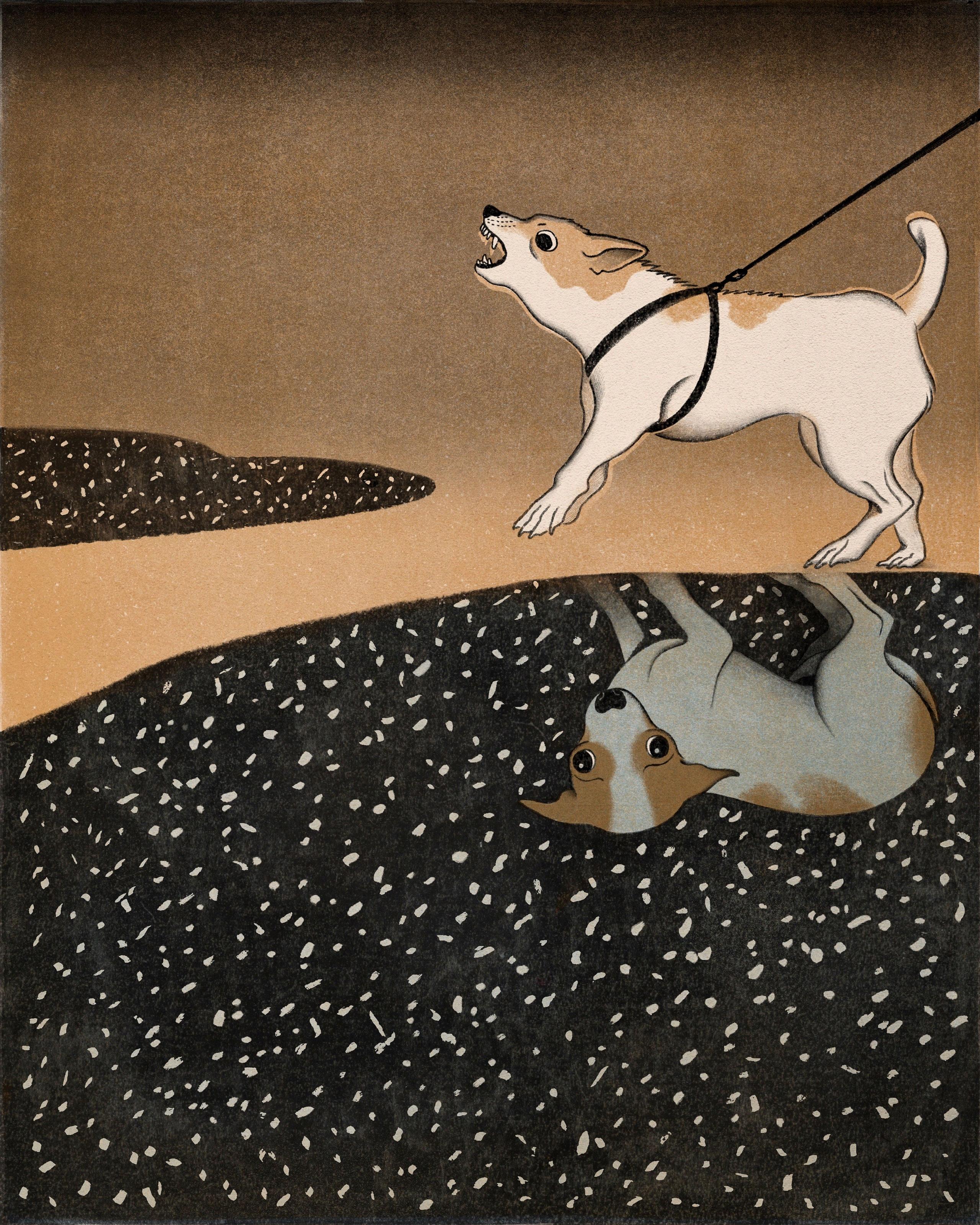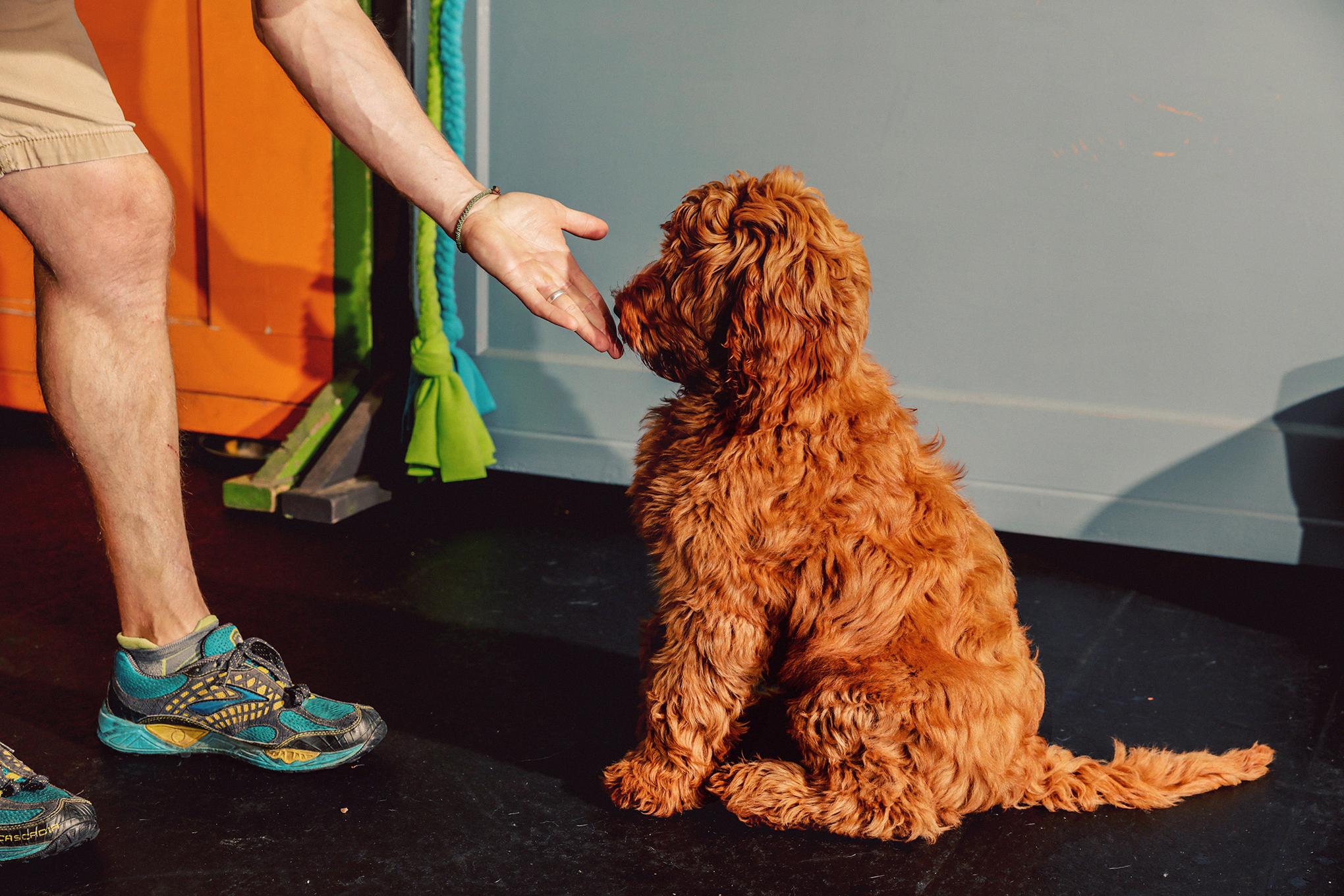Dogs have long been known as man’s best friend, and for good reason. They are loyal, loving, and always eager to please their owners. However, as with any relationship, there are times when discipline is necessary. But do dogs understand delayed punishment?
The answer is not a simple one. Dogs do not have the same cognitive abilities as humans, and therefore, they do not understand punishment in the same way that we do. However, they do have the ability to learn from their actions and the consequences that follow.
Delayed punishment refers to a punishment that is given after the undesirable behavior has occurred. For example, if your dog chews up your favorite shoes while you are away at work, and you scold them when you come home, this is considered delayed punishment.
While dogs do not understand the concept of delayed punishment in the way that humans do, they can still learn from the consequences of their actions. This is becase dogs associate actions with outcomes, and they will repeat behaviors that are rewarded and avoid behaviors that are punished.
It is important to note, however, that punishment should never be physical or violent. This can cause fear, aggression, and other negative behaviors in your dog. Instead, punishment should be non-physical and should be given immediately following the undesirable behavior.
If you do need to punish your dog, it is important to do so in a way that is fair and consistent. This means that the punishment should be proportional to the behavior, and it should be the same every time the behavior occurs. This will help your dog understand the consequences of their actions and will make it easier for them to learn from their mistakes.
While dogs may not understand delayed punishment in the same way that humans do, they can still learn from the consequences of their actions. If you need to discipline your dog, it is important to do so in a way that is fair, consistent, and non-physical. With patience and persistence, you can help your dog learn to behave in a way that is acceptable and appropriate.
Do Dogs Understand Punishment?
Dogs have the ability to learn from their experiences and adapt their behavior accordingly, but they do not aways understand why they are being punished. Punishment can be confusing for dogs, especially if it is not delivered consistently or if it is too harsh. Dogs are not capable of reasoning or understanding abstract concepts like humans, and they rely on their instincts and past experiences to guide their behavior. When a dog is punished, they may associate the punishment with the immediate action they took, but they may not understand the underlying reason for the punishment. Therefore, it is important to use positive reinforcement techniques to encourage good behavior rather than relying solely on punishment to correct bad behavior. This approach will help to build a strong bond between you and your dog, and promote a positive learning environment that will encourage good behavior in the long run.

Source: newyorker.com
Disciplining an Older Dog: Is It Too Late?
No, it’s never too late to discipline your dog. Dogs are capable of learning at any age, and although it may take more time and effort to train an older dog, it’s certainly possible. It’s important to remember that discipline doesn’t necessarily mean punishment, but rather teaching your dog the appropriate behaviors and reinforcing positive ones. Consistency is key when disciplining your dog, and uing positive reinforcement such as treats or praise can be an effective way to encourage good behavior. It’s also important to be patient and understanding, as some dogs may have learned bad habits over time that may take longer to break. With patience, consistency, and positive reinforcement, it’s possible to teach an older dog to listen and obey.
Do Dogs Remember When They Misbehave?
Research has shown that dogs have a good long-term memory and can remember events that have a significant impact on them. However, when it comes to misbehaving, the answer is not so clear. Dogs may remember the consequences of their misbehavior, such as scolding or punishment, but they may not necessarily remember the action itself. It is important to note that dogs do not have a sense of guilt or shame like humans do, so they may not understand why they are being scolded or punished. Therefore, whle dogs may remember the outcome of their misbehavior, it is uncertain if they remember the behavior itself.
The Duration of a Dog’s Memory of Misbehavior
Dogs have a short-term memory and may forget a misbehavior within a few minutes, just like they may forget any other event. However, the length of time a dog remembers misbehaving can vary depending on the severity of the misbehavior and the frequency of repetition. For example, if a dog is punished for a certain behavior consistently, they may remember the association beteen the behavior and the punishment for a longer time. Additionally, some dogs may hold onto negative experiences or emotions associated with certain actions or situations, which may affect their behavior in the future. Ultimately, the length of time a dog remembers misbehaving is not well-defined and can vary depending on several factors.
Can My Dog Forgive Me After Punishment?
Dogs do not have the same capacity for forgiveness as humans. While they may not hold a grudge or dwell on past events, they also do not have the ability to understand the concept of forgiveness. So, if you have punished your dog, it is unlikely that they will forgive you in the way that a human might. However, dogs are incredibly resilient and adaptable animals, and they will quickly learn to adapt to their new circumstances. If you show your dog love, affection, and consistent positive reinforcement, they will likely respond positively and eventually forget about the punishment. It is important to note that punishment shuld never be used as a primary training method, as it can lead to fear and anxiety in dogs. Instead, positive reinforcement and reward-based training methods are recommended for building a strong and positive relationship with your dog.

Source: time.com
The Effects of Positive Punishment on Dogs
Yes, dogs can respond to positive punishment, but it is not the most effective or humane way to train them. Positive punishment involves adding an unpleasant stimulus to decrease a behavior. For example, using a shock collar to stop a dog from barking or hitting a dog for jumping on people. While this may stop the unwanted behavior in the moment, it can lead to fear, anxiety, and aggression in the long term. Additionally, positive punishment does not teach the dog what to do insted of the unwanted behavior. Positive reinforcement, on the other hand, involves rewarding desired behaviors and is a more effective and humane way to train dogs. It teaches the dog what to do instead of punishing them for what not to do.
The Age of Maximum Disobedience in Dogs
Dogs typically go through a phase of disobedience or rebellion, often referred to as their “teenage” phase, which can occur between the ages of 5 months to 18 months. During this time, dogs may test their boundaries and push their owners to see what they can get away with. They may exhibit behaviors such as ignoring commands, jumping on people, or even destructive chewing. It’s important for owners to remain patient and consistent with training during this phase to help their dogs learn appropriate behavior and boundaries. With time and proper training, most dogs will eventually grow out of this phase and becoe well-behaved adult dogs.
Quickest Ways to Discipline a Dog
The quickest way to redirect your dog’s behavior when they are misbehaving is to use a firm and clear voice to interrupt the behavior, followed by offering an appropriate alternative. For example, if your dog is chewing on something they shouldn’t be, say “No” or “Leave it” in a firm tone, then immediately offer them a toy or treat that they are allowed to chew on. It’s important to be consistent with your commands, so your dog understands what is and is not acceptable behavior. Additionally, positive reinforcement should be used to reward good behavior, rather than solely relying on discipline.
Ignoring a Dog When It Misbehaves
Ignoring your dog’s misbehavior can be an appropriate response in some situations, but it should not be your only strategy. Ignoring your dog’s misbehavior can be helpful when your dog is seeking attention from you or is engaging in attention-seeking behaviors like barking or jumping. By ignoring your dog’s behavior, you are not giving them the attention they seek, and they will eventually learn that this behavior does not lead to the desired outcome.
However, it is important to note that ignoring unwanted behaviors aone will not teach your dog what to do instead. If you want to change your dog’s behavior, you should also focus on teaching them alternative behaviors that are more acceptable. For example, if your dog jumps on people, you can teach them to sit instead. This will not only prevent the unwanted behavior but also reinforce a positive behavior.
In summary, ignoring your dog’s behavior can be helpful in some situations, but it’s essential to remember that it is not the only strategy. To effectively change your dog’s behavior, you should also focus on teaching your dog what to do instead and reinforce positive behaviors.

Source: wagwalking.com
Do Dogs Remember Being Scolded?
There is evidence to suggest that dogs have the ability to remember past events and experiences, including instances where they have been scolded by their owners. Studies have shown that dogs can remember specific commands and even the tone of voice used by their owners. Additionally, dogs are able to remember people and oter dogs they have interacted with in the past, which suggests that they may also be able to remember when they have been scolded. However, it is important to note that a dog’s memory is not infallible and can be affected by a variety of factors, such as the intensity of the scolding or the passage of time since the event occurred. Overall, while it is likely that dogs are able to remember when they have been scolded, the extent to which they are able to do so may vary depending on individual factors.
Teaching a Dog to Recognize and Correct Mistakes
To make your dog realize his mistake, it’s important to catch bad behavior early on, so you can stop it beore it becomes a habit. One effective way to do this is to remove your attention from your dog when they show undesirable behavior. For instance, if you’re teaching your dog a command, and they refuse to follow it, you can say “think again” and turn your back on them. This will signal to your dog that they’ve done something wrong, and they’ll be more likely to realize their mistake. Once your dog understands that their behavior is incorrect, turn back around and repeat the command. Using a firm but informative tone of voice can also help your dog understand that they need to correct their behavior. Consistency is key when it comes to teaching your dog the right way to behave. With patience and persistence, your dog will learn to recognize their mistakes and correct their behavior accordingly.
How Dogs Apologize
Dogs are social animals and they have developed different ways to communicate with their owners, including expressing remorse when they have done something wrong. One of the common ways your dog will try to say sorry is by making “puppy eyes”, which involves looking up at you with big, sad eyes that seem to convey an apology. Another common behavior is tucking their tail between their legs, which is a sign of submission and regret. Dogs may also try to make themseves small and avoid eye contact as a way to communicate that they are sorry. Additionally, they may lower their ears and cower in a submissive posture to show that they are remorseful. It’s important to note that not all dogs express their apologies in the same way and some may have different signals to indicate regret or remorse. Understanding how your dog communicates and reacts to different situations can help you recognize when they are trying to say sorry.
Do Dogs Remember Their Owners After Three Days?
No, dogs do not forget their owners after 3 days. In fact, dogs have an incredible ability to recognize and remember their owners for long periods of time, even after extended absences. This is largely due to their highly developed sense of smell, which allows them to associate scents with specific individuals. Dogs also have a strong emotional attachment to their owners, forming deep bonds that can last a lifetime. While dogs may experience some confusion or anxiety when separated from their owners for a short period of time, they are typically able to quickly pick up where they left off when reunited. So, if you’re worried abot leaving your dog for a few days, rest assured that your pup will remember and recognize you when you return.

Source: thehappypuppysite.com
Do Dogs Experience Regret for Their Actions?
Based on scientific research, dogs do not experience complex emotions such as regret. While dogs can feel basic emotions such as joy, fear, and anger, they lack the cognitive ability to understand the consequences of teir actions and feel regret. Studies have shown that dogs have a cognitive level similar to a two-and-a-half-year-old human, meaning they can understand simple cause-and-effect relationships but not complex emotions. Therefore, while a dog may exhibit behaviors that appear remorseful, such as cowering or avoiding eye contact after being scolded, it is not a sign of regret but rather a response to their owner’s tone of voice or body language. Overall, while dogs may feel emotions, they do not have the cognitive capacity to feel regret.
How Long Does a Dog’s Grudge Last?
Actually, dogs do not hold grudges like humans do. Unlike humans, dogs do not have the ability to hold onto negative emotions for an extended period of time. They have a much more simplistic approach to life, and their emotions are much more short-lived. If a dog is upset with you, it is usually because of something immediate and tangible, such as beng scolded for doing something wrong or being left alone for too long. However, even in these situations, a dog’s negative emotions will usually dissipate quickly, especially if the owner takes the time to reassure and comfort the dog afterwards. So, to answer the question directly, it does not take a dog any specific amount of time to hold a grudge because they do not hold grudges at all.
Conclusion
In conclusion, dogs are amazing animals that have a special place in our hearts. They are loyal, affectionate, and intelligent creatures that make wonderful companions. While they may not always understand why they’re being punished, it’s important to use positive reinforcement techniques when training them. This will not only help them learn faster, but it will also help prevent any negative behaviors from developing. Although dogs may not have a long-term memory, they are capable of remembering events that have a significant impact on their ability to survive. Overall, dogs bring joy and happiness to our lives and it’s important to treat them with the love and care they deserve.
